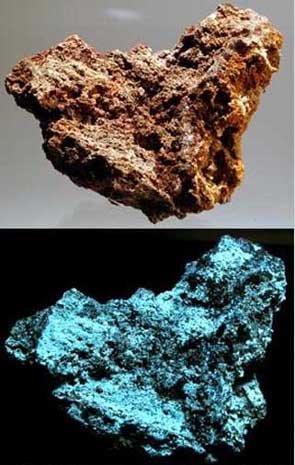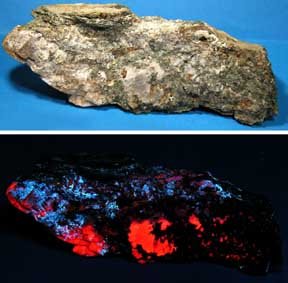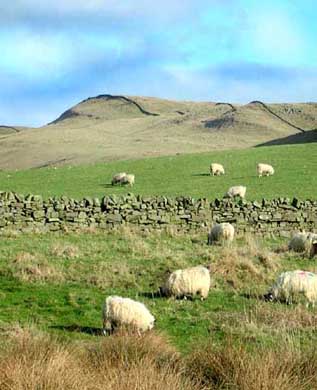Societal Breakdown
A close friend is convinced that this worldwide financial depression - recession might get so bad that society as we know it could completely break down. He feels that in part this will happen because American cities have been built so geographically spread out. The concept of the suburbs is fundamentally based upon cars and cheap gasoline. Since we are running out of oil the opportunity for everything to break down is real.
My friend has recommended that I read the book: The Long Emergency: Surviving the Converging Catastrophes of the Twenty-First Century by James Howard Kunstler.
My buddy knows that I carry a concealed .38 special +P revolver (I have a government permit to do so), and that in both my car and my bedroom I keep loaded .44 magnum revolvers handy. He is convinced that unless you regularly go to a shooting range and practice (I do occasionally, but not what one would call regularly) one should buy a shotgun and several boxes of shells. The idea is that even when one is under when under extreme pressure one can hit the target with a shotgun, whereas this may not be true with a handgun.

After reading this book he is convinced that I may need this to protect myself and my house from the crazed masses facing extreme poverty and starvation. His exact phrase was, “The disenfranchised are going to go ape shit I fear.”
I have read several reviews of the book that he recommended (see below). After reading these reviews I think I will forego reading this book. I’m not a big fan of conspiracy theories, even though I still do wonder a bit about JFK.
-
He may be right..he's a smart guy. Things may completely go to hell in a handbasket. But I think this view is a little overly pessimistic. I sure hope so.
-
But his advice to go buy a shotgun seems sound. So as of today I am in the market for a reliable shotgun.
-
-
-
-
-
Book Reviews:
From Publishers Weekly
The indictment of suburbia and the car culture that the author presented in The Geography of Nowhere turns apocalyptic in this vigorous, if overwrought, jeremiad. Kunstler notes signs that global oil production has peaked and will soon dwindle, and argues in an eye-opening, although not entirely convincing, analysis that alternative energy sources cannot fill the gap, especially in transportation. The result will be a Dark Age in which "the center does not hold" and "all bets are off about civilization's future." Absent cheap oil, auto-dependent suburbs and big cities will collapse, along with industry and mechanized agriculture; serfdom and horse-drawn carts will stage a comeback; hunger will cause massive "die-back"; otherwise "impotent" governments will engineer "designer viruses" to cull the surplus population; and Asian pirates will plunder California. Kunstler takes a grim satisfaction in this prospect, which promises to settle his many grudges against modernity. A "dazed and crippled America," he hopes, will regroup around walkable, human-scale towns; organic local economies of small farmers and tradesmen will replace an alienating corporate globalism; strong bonds of social solidarity will be reforged; and our heedless, childish culture of consumerism will be forced to grow up. Kunstler's critique of contemporary society is caustic and scintillating as usual, but his prognostications strain credibility.
(May) Copyright © Reed Business Information, a division of Reed Elsevier Inc. All rights reserved.
From Booklist
Kunstler established a writing career criticizing American suburbia (e.g., The Geography of Nowhere, 1993), and his animosity against his bete noire does not abate here. It's a wide--casting, statistics-studded ramble through energy production and technologies, world economic and political history, and climatology that culminates in predictions that the suburbs are doomed. His assertions are always self--confident, sometimes immodestly so, as when he dismisses in toto any possibility that the market, or technologists, will rescue contemporary civilization from a world of declining oil production. Discerning an imminent future of protracted socioeconomic crisis, Kunstler foresees the progressive dilapidation of subdivisions and strip malls, the depopulation of the American Southwest, and, amid a world at war over oil, military invasions of the West Coast; when the convulsion subsides, Americans will live in smaller places and eat locally grown food. Credit Kunstler with an energetic argument, but whether he has achieved his stated goal--waking up an ostensibly somnolent public--via his relentless and alarmist pessimism remains to be seen.
Gilbert TaylorCopyright © American Library Association. All rights reserved
Peak Oil Is Real, But This Book is a Bigoted Rant, September 21, 2005
By Anaxagoras (Austin, TX USA)
Peak Oil Is Real, But This Book is a Bigoted Rant, September 21, 2005
By Anaxagoras (Austin, TX USA)
-
I very much wanted to like this book. I greatly enjoyed Kunstler's earlier works (The Geography of Nowhere and Home from Nowhere), and I am deeply involved in local activism to make my local community less dependent on oil. I have read a great deal about Peak Oil and have no doubt that it is real and will soon be the greatest issue facing America and the world. That said, I hated this book. Hated it. Hated, hated, hated, HATED it.
I very much wanted to like this book. I greatly enjoyed Kunstler's earlier works (The Geography of Nowhere and Home from Nowhere), and I am deeply involved in local activism to make my local community less dependent on oil. I have read a great deal about Peak Oil and have no doubt that it is real and will soon be the greatest issue facing America and the world. That said, I hated this book. Hated it. Hated, hated, hated, HATED it.
-
Kunstler displays a suffocating sense of superiority over everyone else (including the reader) and a total intolerance to any view other than his own. In his world, there is no god but the Long Emergency, and Kunstler is its prophet. He explains the basic of Peak Oil well enough (although a much more thorough presentation can be found in Richard Heinberg's books). He then goes off on a rant about geopolitics in the Middle East, a lot of which is simply wrong, and the rest being already well-known to anyone who reads the newspaper. He has no real idea what's he talking about here, but gives the impression that he believes his words to be true simply because they are HIS words. Kunstler then describes various forms of alternative energy which others say could help alleviate the problems Peak Oil will bring. He dismisses every single one of them, as if with the wave of a hand. Many of these proposed solutions are simply straw men that Kunstler sets up in order to shoot down. Many of the most innovative ideas to help deal with Peak Oil- the ones Kunstler would have a harder time debunking- are not even mentioned. Rather than rationally explore all the options, Kunstler begins with the assumption that nothing can possibly work and then seeks only the evidence to support his own point of view.
-
The final chapter deals with "Living in the Long Emergency" and is simply a manifestation of Kunstler's dystopian dream world. He describes America degenerating into a self-made hell, and he seems to delight in describing how horrible every place will be. The Southwest will be overrun by Mexican invaders, Asian pirates will devastate the Pacific Coast, fundamentalist Christians will transform the South into a theocracy, and everywhere there will be starvation, disease and total societal collapse (with the single exception, oddly enough, his own neck of the woods in upstate New York, which apparently will be fine). In particular, he singles out NASCAR fans and people who listen to hip-hop music as being horrible human beings. The book has no index or list of sources. There are very few footnotes, and none of them refer to any reliable sources. One gets the impression that the few footnotes were tossed in to make the book appear to be a work based on research, but Kunstler is no researcher. Where do his facts come from? He doesn't bothering telling us- we're just supposed to trust him.
-
Despite his protestations on the very first page, it is clear throughout the book that Kunstler WANTS society to collapse. His resentment towards modern America (and modern Americans) is obvious on every single page of this book. He wants Americans to suffer because he thinks that we deserve it. Ultimately, this book is based less on facts that it is on Kunstler's personal social prejudices. For a better understanding of Peak Oil and its implications, I would recommend Richard Heinberg's "The Party's Over" and Paul Roberts' "The End of Oil." In those books, you get the basic facts of the situation and suggestions for how to make the situation better, without the insulting, self-righteous, holier-than-thou ranting of this work.
-
-
-
-
-
-
-
-
-
-
-















